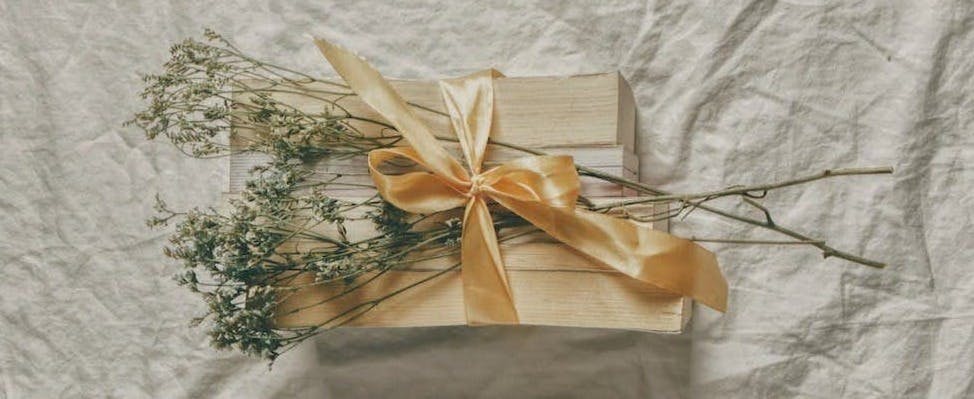Today I’m continuing our series on fancy terms to change your world with a next term: gift. Not fancy or world-changing enough? Think again.
|
|
Anthropologists have written volumes on gift-giving, but rather than force feed you analyses of shell exchanges in Papua New Guinea, I’d like to tell you about the ugliest shirt I’ve ever worn.
When my husband and I were bright-eyed 23-year-olds, we lived in a village in Nicaragua. Most of what we attempted failed—we taught literacy classes that dwindled to four pupils, we sweated miserably as we labored on cliff-like hillsides in flip-flops, and everything in my garden died. But people seemed not terribly bothered by that. Instead they kept giving us presents. Everybody fed us—homemade cheese, fresh-squeezed mango juice, and seemingly every papaya that ever came ripe in the village. (Do I like papaya? Not really.)
For me especially, they loved giving hand-me-down clothes. A purple “dry clean only” skirt that I’d wash on rocks like everything else. A pair of skin-tight jeans. So much 19080s fashion. And the epitome—a baby blue blouse in thick polyester that felt like the slacks my grandmother would buy from the farm store. It had puffy shoulders, massive buttons, and best of all, a collar that extended into a giant bow below my chin.
But oh, the compliments! People loved seeing me in that polyester monstrosity. Why? Because it was a gift, and I received it, and that made us friends.
Here’s what’s world-changing about gifts. Every culture teaches rules about gift giving that become so firmly obvious that they never get written as laws. By following or breaking our culture’s rules of gift-giving, we communicate answers to two of life’s biggest questions: 1) Are we still in a relationship? 2) Who has higher status?
Did you know you go through life all the time telling people you’re not in a relationship? Here’s how: you close off gift-giving relationships. It happens when I go to Walmart and swipe a card to give someone money, then take my new shirt and bike home. I owe nothing and nothing is owed to me. I will not speak to the checkout worker again. We’re even. We’re done.
Consider in contrast the baby blue shirt. I gave some classes. They gave papayas and a shirt. These are not even, and aren’t supposed to be. Each of us assumes we’ll keep on giving, not immediately, not exactly evenly, but continuously. Ta da! Relationship happens. The tension of unrepaid gifts makes great sitcom material (here and here), and also great friendships. As anthropologist Marshall Sahlins put it, “Gifts make friends and friends make gifts.”
Also notice gifts say something about status. In some relationships, gifts aren’t expected to balance out, like bosses buying employees’ lunch or parents giving to kids. It’s not by chance that in both those examples, the bigger payer has higher social status. Here’s the pattern: Higher status people make unrepayable gifts, and unrepayable gifts make unbalanced status.
Here are two big take-aways. First, charity isn’t just a gift, it’s a signal of high and low status. When I look back on our time in Nicaragua, there’s a lot we failed at, but one thing I believe we did right was receive gifts, polyester bows and all. Doing so communicated like nothing else could that our Nicaraguan neighbors mattered, in a world where American citizenship, college education, and bank accounts all signaled the opposite.
And the second take-away is that humans desperately need mutuality. We need to receive and give again and again. That makes life good. I fear in our society we are forgetting how to do that.
Try taking an audit of your gift giving. Is there someone you’ve been giving to in ways that inadvertently signal you’re the higher status? If so, how might you signal equality by finding a way to receive? Or is there somebody with whom you could rekindle friendship by initiating a gift?
I wish you a week of good relationships and good gifts.
|
|
|
|

